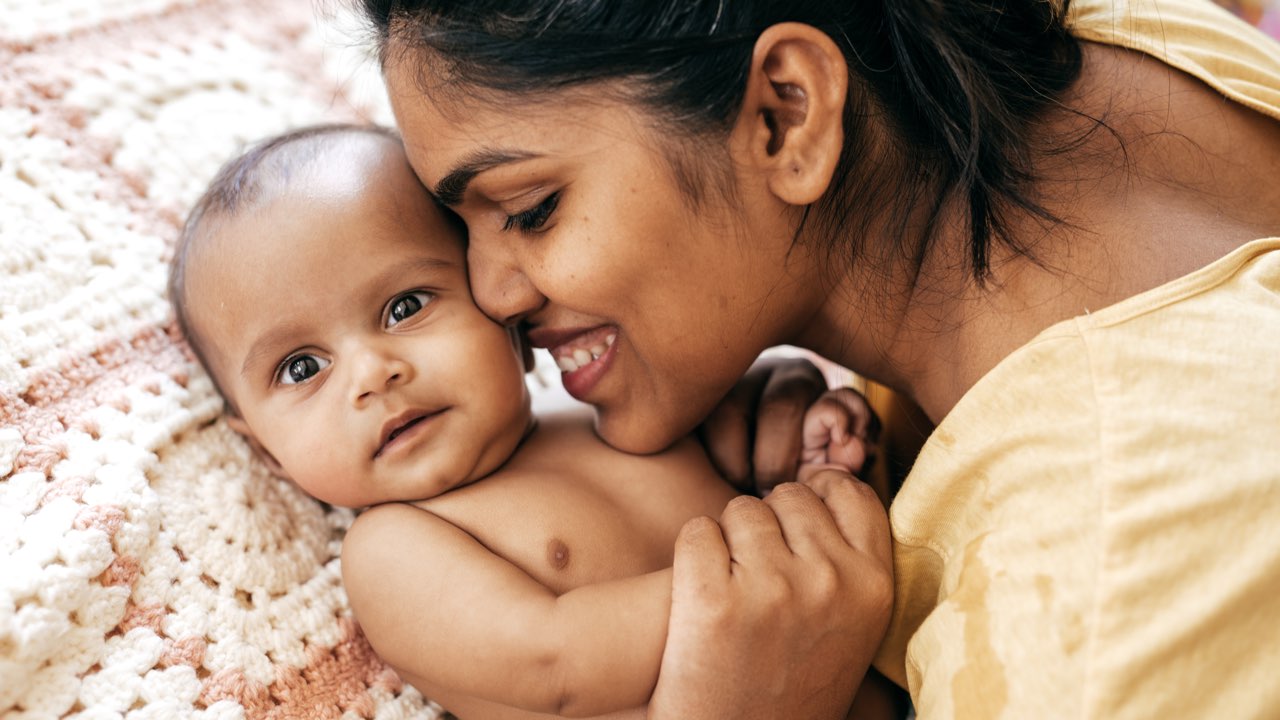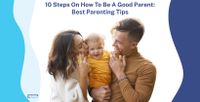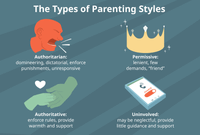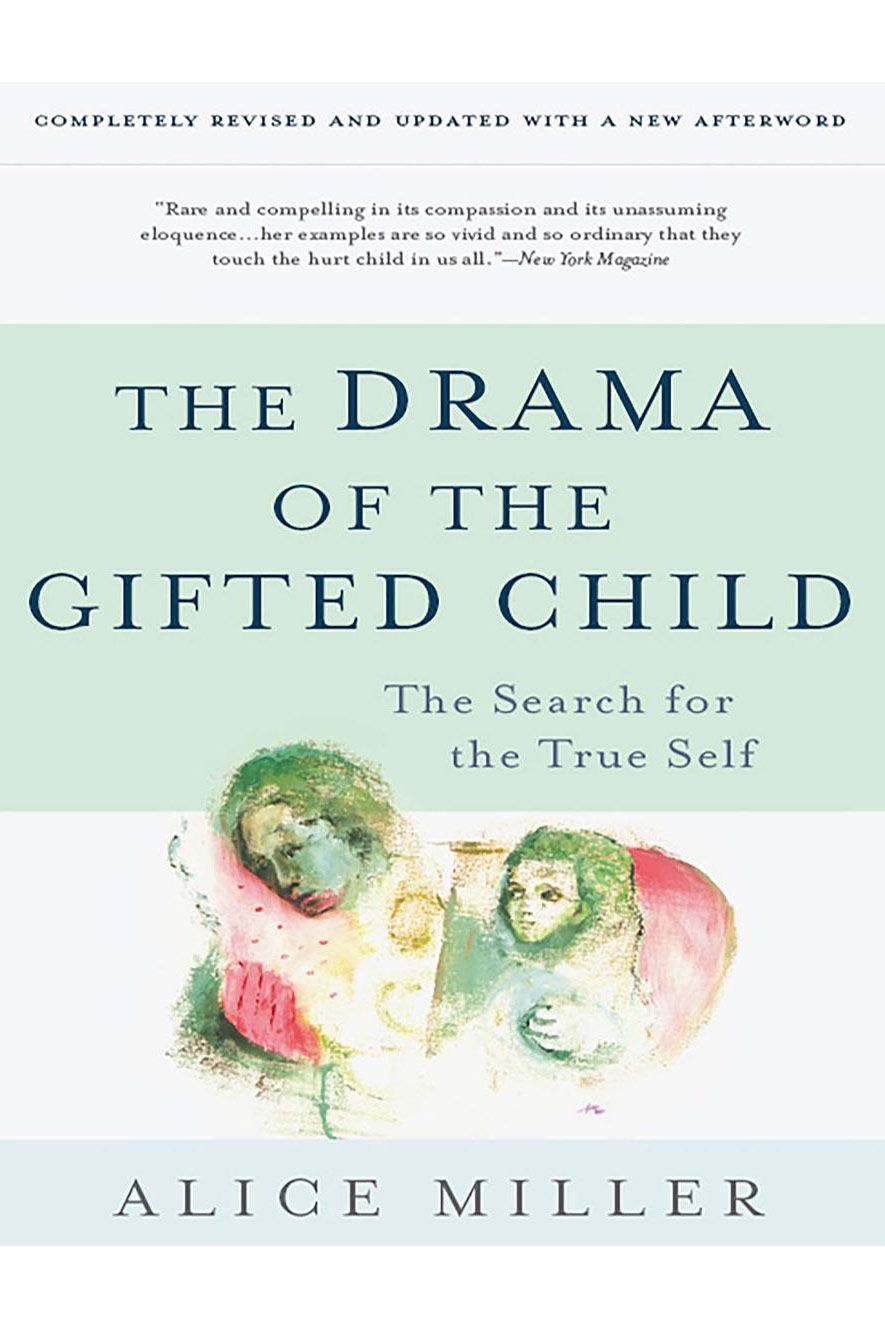Explorez les résultats de recherche web liés à ce domaine.
Read Raising Hell: A Demon's Guide to Parenting Now! Digital comics on WEBTOON, EVERY THURSDAY. What if the foretold hero of prophecy crosses paths with their demonic nemesis a tad too early? As he attempts to alter destiny by raising a magical child of legend, the former "Demon King" incidentally ...
Read Raising Hell: A Demon's Guide to Parenting Now! Digital comics on WEBTOON, EVERY THURSDAY. What if the foretold hero of prophecy crosses paths with their demonic nemesis a tad too early? As he attempts to alter destiny by raising a magical child of legend, the former "Demon King" incidentally fulfills his fated demise by this hero's hands... through parenthood., available online for free.

Raising Children Network is supported by the Australian Government. Member organisations are the Parenting Research Centre and the Murdoch Childrens Research Institute with The Royal Children’s Hospital Centre for Community Child Health · Follow us on social media

Getting Help for Depression If you feel depressed or alone, talking to a parent is a good place to start. Tips for talking ... Raising kids is one of the toughest and most fulfilling jobs in the world — and the one for which you might feel the least prepared. These 9 child-rearing tips can ...
Getting Help for Depression If you feel depressed or alone, talking to a parent is a good place to start. Tips for talking ... Raising kids is one of the toughest and most fulfilling jobs in the world — and the one for which you might feel the least prepared. These 9 child-rearing tips can help you feel more fulfilled as a parent.Parenting is incredibly challenging and rewarding. Here are 9 child-rearing tips that can help.Chances are, what works with your child now won't work as well in a year or two. Teens tend to look less to their parents and more to their peers for role models. But continue to provide guidance, encouragement, and appropriate discipline while allowing your teen to earn more independence.As a parent, you're responsible for correcting and guiding your kids. But how you express your corrective guidance makes all the difference in how a child receives it.

Helping parents give children the best start in life.
That's why UNICEF Parenting brings together some of the world’s leading experts to support you with helpful tips, insights and facts. Science-backed information you can trust to help give your child the best start in life!What you need to know about your growing child. ... Parenting advice from some of the world's leading experts.We all want what's best for our children, but being a parent isn't always easy.


L’adolescente disparue à Bruxelles le 3 février dernier a été retrouvée, a communiqué le parquet de Bruxelles....
L’adolescente disparue à Bruxelles le 3 février dernier a été retrouvée, a communiqué le parquet de Bruxelles. Celle-ci avait fugué et suivi en France un homme rencontré en ligne, connu pour des faits de viol. Un phénomène de plus en plus répandu, contre lequel se bat quotidiennement Child Focus.Face à ce danger, et à l’occasion de la journée européenne pour un Internet plus sûr, Child Focus et Betternet ont récemment lancé le podcast "Parentalité numérique". Trois épisodes durant lesquels des conseils sont donnés aux parents pour mieux accompagner leurs enfants en ligne.En premier lieu, Child Focus conseille aux parents de s’intéresser à l’univers numérique de leurs enfants, à savoir se renseigner sur ce qu’ils font sur Internet, avec qui ils discutent, de quoi… L’idée est donc d'"avoir une communication ouverte et non jugeante" et d'"être une personne de confiance pour son enfant", comme le préconise Selyna Ayuso Ferrandiz.Ces histoires de rencontre dangereuse sont bien connues de Child Focus.
Best Gentle Parenting Books: Raising Good Humans; Peaceful Parent, Happy Kids · Best Parenting Books On Autism: Autism Spectrum Disorder; The Reason I Jump; Uniquely Human · Best Parenting Books For Learning Disabilities: Overcoming Dyslexia; The Everything Parent's Guide To Special Education; Helping Your Child ...
Best Gentle Parenting Books: Raising Good Humans; Peaceful Parent, Happy Kids · Best Parenting Books On Autism: Autism Spectrum Disorder; The Reason I Jump; Uniquely Human · Best Parenting Books For Learning Disabilities: Overcoming Dyslexia; The Everything Parent's Guide To Special Education; Helping Your Child With Language-Based Learning DisabilitiesSo consider books a tool, but try not to let them stress you out. One of our favorites is The Whole-Brain Child, a book that helps you understand how your child’s brain works, but we’ve also included books for toddler parents, teen parents and those raising neurodiverse kids, too.If you’re like many parents today who are trying to simplify their lives and reduce both physical and mental clutter, this book is for you. It will help you reduce the amount of things you have in your home, develop predictable routines for your family and create a calm environment. It’s written by a school counselor and private family counselor-therapist. You’ll learn how to live a lifestyle and pace that’s appropriate for raising young children.It features cutting-edge research and provides you with tools to support your child with a dyslexia diagnosis, which can often come as a surprise to parents. You’ll find information on how raise your child’s self-esteem, the latest programs designed to strengthen their reading skills and choosing schools that are tailored to their needs.
A parent's relationship with his or her child will be reflected in the child's actions -- including child behavior problems, Natale explains. "If you don't have a good relationship with your child, they're not going to listen to you. Think how you relate to other adults.
You know the checkout line scenario: 3-year-old child wants this toy, this candy, this something -- and they want it nooooow! The crying starts, escalating into a full-blown tantrum. In his new book, The Ten Basic Principles of Good Parenting, Laurence Steinberg, PhD, provides guidelines based on the top social science research -- some 75 years of studies.Good parenting helps foster empathy, honesty, self-reliance, self-control, kindness, cooperation, and cheerfulness, says Steinberg. It also promotes intellectual curiosity, motivation, and desire to achieve. It helps protect children from developing anxiety, depression, eating disorders, anti-social behavior, and alcohol and drug abuse.A parent's relationship with his or her child will be reflected in the child's actions -- including child behavior problems, Natale explains. "If you don't have a good relationship with your child, they're not going to listen to you. Think how you relate to other adults.Being involved does not mean doing a child's homework -- or reading it over or correcting it. "Homework is a tool for teachers to know whether the child is learning or not," Steinberg tells WebMD. "If you do the homework, you're not letting the teacher know what the child is learning." 4. Adapt your parenting to fit your child.


Raising kids is hard work. Making time for self-care is essential parenting advice. Qualities of a good parent include unconditional love, attunement, self-reflection, psychological flexibility, and a balanced mindset. How should parents treat their children? Parents should treat their children with love, guidance...
Raising kids is hard work. Making time for self-care is essential parenting advice. Qualities of a good parent include unconditional love, attunement, self-reflection, psychological flexibility, and a balanced mindset. How should parents treat their children? Parents should treat their children with love, guidance, and respect.Children raised with consistent discipline have fewer conduct issues, according to a 2017 study titled “Harsh Parenting, Child Behavior Problems, and the Dynamic Coupling of Parents’ and Children’s Positive Behaviors,” by Erika Lunkenheimer et al., published in the Journal of Family Psychology. Supportive autonomy involves encouraging children to make choices, solve problems, and take responsibility for their actions while providing guidance and emotional support.Good parents create a secure and nurturing environment in raising children, fostering confidence, resilience, and positive social behavior. Good parenting includes providing not only basic needs like food, shelter, and safety but also emotional support, guidance, and discipline.Raising children in a positive environment enhances their mental health and well-being. Children who grow up with strong parental support and guidance are better equipped to handle stress and adversity.

While raising an old child, it can be easy to get in the habit of catering to their every need. In contrast, children with siblings often need to "wait in line" to have their needs met. And learning how to wait, says Dr. Tanner, is a vital lesson. To prevent only children from developing an attitude of "I get what I want when I want it," parents should set limits, delay gratification, stick to household rules, and instill discipline through guidelines ...
While raising an old child, it can be easy to get in the habit of catering to their every need. In contrast, children with siblings often need to "wait in line" to have their needs met. And learning how to wait, says Dr. Tanner, is a vital lesson. To prevent only children from developing an attitude of "I get what I want when I want it," parents should set limits, delay gratification, stick to household rules, and instill discipline through guidelines and expectations.Having one child can come with a lot of benefits for some families, but it can also have its own set of challenges. Here are our top tips for raising an only child.About 22% of children didn't have siblings once their birthing parents reached the end of childbearing age in 2015, compared with 11% in 1967. And it's believed that the number of only-child families has only increased since then. A small family differs dramatically from a large one and raising an only child comes with an entirely different set of challenges and rewards.It might seem like your only child will naturally grow up being pretty independent, but in some cases, the opposite can be true as a result of all the extra attention from parents and caregivers. There are some strategies that can help foster healthy independence in your only child. Raising an only child can foster a super-close parent-child relationship.

PS Want to help your kids have less stress and more success at home and school? CLICK HERE to get a copy of our book, The Resiliency Toolkit: A Busy Parent’s Guide to Raising Happy, Confident, Successful Children.
Yesterday, as I was flying home from Seattle, I started thinking about my life and about being a parent for more than 50 years, a grandfather for nearly 30 years, and a great grandfather for 6+ years. Somewhere while sitting in the wild blue yonder, I thought to myself, “Wow! With all this experience I should write a post and share my knowledge about raising children with the world.Be yourself and your children will respond positively, but it might do you some good knowing that as perfect as you are you will not get everything right (I’m certain that you are surprised by me telling you this, but the fact is that humility makes parents better). There you have my eight suggestions for raising children.I believe that we should encourage our children to take a nap every afternoon in their most boring class. Teachers will understand, after all they were students once, and they understand sleep deprivation due to the rapid growth of brain cells every high school student experience and so naps are needed. Taking a nap in school is a great idea and extremely helpful to parents.Look at it this way, when school gets out and the children rush home to eat their snack, they are full of extra energy which means they can apply this energy to the dreadful task of sitting down and working on their homework and finishing it before dinner. This approach solves the problem of nagging parents’ homework blowups.
Don't clip your child's wings. Your toddler's mission in life is to gain independence. So when they're developmentally capable of putting their toys away, clearing their plate from the table, and dressing themselves, let them.
Throughout the year, our board of advisors—a brain trust of the best pediatric doctors, developmental experts, and educators in the country—shares the latest thinking about raising healthy and happy kids. Now we've gathered our all-time favorite nuggets of advice in one place. Broadly speaking, this is what the experts say about how to be a good parent and improve your parenting skills: ... Read on to learn more about what this looks like in practice and how to put these expert tips to good use. Take charge. Children crave limits, which help them understand and manage an often confusing world.Your partnership is one example your child has of what an intimate relationship looks, feels, and sounds like. So it's important to set a great standard. Respect parenting differences. Support your co-parent's basic approach to raising kids—unless it's way out of line.Show your child how to become a responsible citizen. Find ways to help others all year. Kids gain a sense of self-worth by volunteering in the community. Don't raise a spoiled kid. Keep this thought in mind: Every child is a treasure, but no child is the center of the universe.Don't clip your child's wings. Your toddler's mission in life is to gain independence. So when they're developmentally capable of putting their toys away, clearing their plate from the table, and dressing themselves, let them.
:max_bytes(150000):strip_icc()/550_101309537-0f2c3c3b6a6b48a69e8fae5169a80587.jpg)

They might ensure that their kids ... way of guidance, structure, rules, or even support. These parents may seem indifferent, unresponsive, and dismissive. In some cases, these parents may reject or neglect the needs of their children. They may also be physically or emotionally abusive. A 2019 study found that children raised by neglectful ...
They might ensure that their kids are fed and have shelter but offer little to nothing in the way of guidance, structure, rules, or even support. These parents may seem indifferent, unresponsive, and dismissive. In some cases, these parents may reject or neglect the needs of their children. They may also be physically or emotionally abusive. A 2019 study found that children raised by neglectful parents tend to struggle in school, experience more depression, have worse social relationships, have difficulty controlling their emotions, and experience more anxiety.Developmental psychologists have long been interested in how parents affect child development. However, finding actual cause-and-effect links between specific actions of parents and the later behavior of children is very difficult. Some children raised in dramatically different environments can grow up to have remarkably similar personalities.Conversely, children who share a home and are raised in the same environment can grow up to have very different personalities. Despite these challenges, researchers have posited that there are links between parenting styles and the effects these styles have on children.According to Baumrind, authoritative parents are good at setting standards and monitoring their children's behavior. Their disciplinary methods are assertive and supportive rather than intrusive, restrictive, or punitive. For authoritative parents, the goal is to raise children who are socially responsible, cooperative, and self-regulated.
Everything Parent's Guide to Raising a Successful Child (Everything Series) [Witmer, Denise D] on Amazon.com. *FREE* shipping on qualifying offers. Everything Parent's Guide to Raising a Successful Child (Everything Series)
Is my child already "successful"? As parents struggle with these questions on a daily basis, The Everything® Parents Guide to Raising a Successful Child helps put their fears to rest, providing them with professional, reassuring advice on how to raise a "successful" child according to their own standards.The Everything® Parents Guide to Raising a Successful Child is the first step in establishing realistic expectations, setting boundaries, and helping shape the mind of a responsible, well-rounded, happy young adult.Denise D. Witmer is the Guide for About.coms Parenting of Adolescents site. Her site and advice has been featured in US News and World Report, Better Homes and Gardens Raising Teens Magazine, and USA Today online. Ms. Witmer is trained in PET (Parent Effectiveness Training), STEP (Support and Training for Exceptional Parents), and is the mother of three children.Denise D. Witmer is a recognized writer of parenting and family books and websites, creating About.com’s Parenting Teens site and publishing its articles and resources since 1997. Her site and advice has been featured in US News and World Report, Better Homes and Garden’s Raising Teens Magazine and USA Today online. Ms. Witmer has been a ‘professional parent’ at a Childrens' Home in Pennsylvania from 1988 to 2006.
Parents and public health experts have a lot to say about what adolescent girls do on their phones. We asked teens to weigh in.
Psychologists suggest teenagers take social media breaks, and ask themselves as they scroll: “Do I feel bad about myself while looking at this?” Public health experts recommend “adult monitoring” and setting clear boundaries for when and where teens have access to their phones. The surgeon general wants parents to keep their child’s bedroom device-free for at least an hour before bedtime, and through the night.

Reviewers love the mindful approach to parenting for helping diffuse tantrums and outbursts and helping improve communication between them and their children. Offering practical advice backed by science the book is an easy read featuring illustrations and relevant stories. — Chinea Rodriguez, shopping writer ... Raising Good Humans is a guide ...
Reviewers love the mindful approach to parenting for helping diffuse tantrums and outbursts and helping improve communication between them and their children. Offering practical advice backed by science the book is an easy read featuring illustrations and relevant stories. — Chinea Rodriguez, shopping writer ... Raising Good Humans is a guide to raising kids with compassion and confidence by looking inward.When it comes time to consider what type of schooling you might want for your kids, Raising Free People is a must-read. The book discusses the transition from school or homeschooling to unschooling and how it allows us to address trauma and unlearn the habits we mindlessly pass on to children as well as a “how-to” when it comes to this radical idea of schooling. Plus it features a reading list and tips on how to respond when people don’t get this type of parenting style. It truly is a guide to unschooling.What Senior’s book clarifies, again and again, is that the thing that affects parents (and therefore children) the most is what gets lost in most conversations about “parenting”: the daily, lived experience of raising children.In her latest book, she explores “the new science of child development” and what it tells us about the parent-child relationship. She opens with a criticism of the way we talk about raising children — “parenting” is a word, and a cottage industry, invented in the past 30 years.


Is your parenting style authoritative, authoritarian, permissive, or uninvolved? Learn how researchers classify parents, and how parenting affects kids.
Parenting styles reflect our beliefs about authority and children's needs. How do researchers identify your style, and evaluate the effects on kids?Permissive parenting is more affectionate and child-centered, but because caregivers don’t enforce limits, their children can be at higher risk for developing behavior problems and unhealthy habits. Authoritative parenting is warm and nurturing, but also mindful of setting age-appropriate limits. Caregivers try to guide behavior through reasoning, rather than punishments, and they make kids feel acknowledged or included during family decision-making.Parents influence their children through specific practices, like engaging babies in language-learning opportunities, encouraging kids to play outdoors, and troubleshooting sleep problems. But parenting – so the argument goes – is more than a set of specific practices. What about the overall approach to guiding, controlling, and socializing kids?Compared to their children, parents possess special knowledge about what’s required to get along in society. They can therefore provide the guidance of rational authority – using reasoning, positive reinforcement, and the age-appropriate application of standards — to help kids learn how to balance their freedoms and responsibilities.

USD $12.99 The Parenting Handbook: Your Guide to Raising Resilient Children is an award-winning & best-selling book from the Co-Founders of ICP. It is your essential roadmap based on the science of parenting with secrets and practical tools that gives parents the answers they so desperately need.
Here you will find the secrets to raising children who are kind, empathic, self-regulated, emotionally intelligent; and who become gritty, resourceful, successful critical thinkers who can handle hard things. “The Parenting Handbook: Your Guide to Raising Resilient Children” contains the essential ingredients every parent needs to tackle tough parenting problems, implement effective discipline strategies, navigate screen time or bedtime battles, manage meltdowns, or learn how to lose it less on their kids.© 2023 Institute of Child Psychology | All Rights Reserved | Marketing & Designed By Rapid Boost Marketing. ... New item(s) have been added to your cart. The Parenting Handbook: Your Guide to Raising Resilient Children (E-Book)Be the first to review “The Parenting Handbook: Your Guide to Raising Resilient Children (E-Book)” Cancel replyThis book contains a roadmap to tackle tough parenting problems, foster optimal brain development in children, and create positive mental health outcomes. It then translates this vital information into practical steps you can implement immediately. This book is the ultimate guide to nurturing emotional regulation, resiliency, connection, and well-being in children.
Best Gentle Parenting Books: Raising Good Humans; Peaceful Parent, Happy Kids · Best Parenting Books On Autism: Autism Spectrum Disorder; The Reason I Jump; Uniquely Human · Best Parenting Books For Learning Disabilities: Overcoming Dyslexia; The Everything Parent's Guide To Special Education; Helping Your Child ...
Best Gentle Parenting Books: Raising Good Humans; Peaceful Parent, Happy Kids · Best Parenting Books On Autism: Autism Spectrum Disorder; The Reason I Jump; Uniquely Human · Best Parenting Books For Learning Disabilities: Overcoming Dyslexia; The Everything Parent's Guide To Special Education; Helping Your Child With Language-Based Learning DisabilitiesSo consider books a tool, but try not to let them stress you out. One of our favorites is The Whole-Brain Child, a book that helps you understand how your child’s brain works, but we’ve also included books for toddler parents, teen parents and those raising neurodiverse kids, too.If you’re like many parents today who are trying to simplify their lives and reduce both physical and mental clutter, this book is for you. It will help you reduce the amount of things you have in your home, develop predictable routines for your family and create a calm environment. It’s written by a school counselor and private family counselor-therapist. You’ll learn how to live a lifestyle and pace that’s appropriate for raising young children.It features cutting-edge research and provides you with tools to support your child with a dyslexia diagnosis, which can often come as a surprise to parents. You’ll find information on how raise your child’s self-esteem, the latest programs designed to strengthen their reading skills and choosing schools that are tailored to their needs.


Are time-outs and punishments no longer effective in your home? Here are 5 positive parenting techniques you can use today to diffuse the power struggles in your home and find joy again in parenting. As a positive parenting educator, I’ve been helping families for 15+ years and can help yours too!
Plus, when you subscribe, I'll also send you a copy of our strategy-packed guide 10 Tips for Better Behavior – Starting NOW! Register for my free class called How to Get Kids to Listen, Without Nagging, Yelling or Losing Control. Classes run several times per week to accommodate your busy schedule. Join the hundreds of thousands of parents who have transformed their families with the 7-Step Parenting Success System® Course. Learn the tools you need to raise happy, respectful, responsible kids and create the family life you always dreamed of having.Nationally recognized parenting expert Amy McCready is the Founder of Positive Parenting Solutions® and the best-selling author of The “Me, Me, Me” Epidemic - A Step-by-Step Guide to Raising Capable, Grateful Kids in an Over-Entitled World and If I Have to Tell You One More Time…The Revolutionary Program That Gets Your Kids to Listen Without Nagging, Reminding or Yelling.If you’re experiencing a lot of nagging and negotiating from your child because of inconsistency in the past, you can end it with 3 simple words, and get back on track. Note: For Positive Parenting Solutions course members, refer to Step 3, Lessons 25 & 26 for everything you need to know about implementing effective consequences in your home. Also, review the Ultimate Survival Guide module included in your enrollment: The Technology Survival Plan.It’s the moment parents know all too well: the moment when the energy in your house totally shifts. All was calm until you handed breakfast to your toddler on the ever-so-controversial blue plate. You know, the one he liked YESTERDAY. Somehow overnight, everything you thought you knew about your child was suddenly wrong – “I want my sandwich in triangles, not rectangles!” or “I want the green cup, not the red one!” or “I hate those socks!!”

Parenting is a rewarding journey filled with ups, downs, and everything in between. As a parent myself, I understand the challenges and joys that come with raising children.
Parenting is a rewarding journey filled with ups, downs, and everything in between. As a parent myself, I understand the challenges and joys that come with raising children. In this article, I’ll share essential tips and insights to help navigate the rollercoaster ride of parenthood with confidence and grace.Understanding your child’s needs, emotions, and behaviors is key to building a strong parent-child bond. Each child is unique, so take the time to listen, observe, and communicate effectively with them. Setting clear and consistent boundaries is essential for your child’s development. Establishing rules helps them understand expectations and promotes a sense of security and discipline. Praising and encouraging your child’s good behavior reinforces positive habits.Open and honest communication is crucial in fostering a healthy relationship with your child. Encourage them to express their thoughts and feelings, and listen attentively without judgment. Consistency in parenting approaches helps create stability and predictability for your child.I believe that nurturing a strong bond with my child is essential for their overall growth. By actively listening to them, engaging in activities together, and showing affection, I can establish a secure attachment that fosters their emotional well-being. In my parenting journey, setting clear boundaries and rules has been vital.







:max_bytes(150000):strip_icc()/550_101309537-0f2c3c3b6a6b48a69e8fae5169a80587.jpg)


